Blog

September 3, 2025
Planning a wedding can be an exciting and joyful experience, but it can also be a stressful and overwhelming task. With so many decisions to make and details to consider, one of the most important aspects of wedding planning is setting a budget. When it comes to choosing a wedding venue, there are countless options to consider – from traditional hotels and banquet halls, to rustic barns and outdoor gardens. But no matter what type of venue you choose, it’s important to set a budget and stick to it. One of the first things you’ll need to consider when setting a budget for your wedding venue is the size of your guest list. A larger guest list will likely require a larger venue, which can significantly impact your budget. It’s important to be realistic about how many guests you’ll be inviting, and to choose a venue that can comfortably accommodate everyone. Another factor to consider when setting a budget for your wedding venue is the location. Venues in major cities or popular tourist destinations are often more expensive than venues in smaller towns or rural areas. You’ll also need to consider any additional costs, such as transportation and accommodations for out-of-town guests. Before committing to a venue, it’s important to carefully review the contract and understand all costs associated with the rental. Some venues may have hidden fees or restrictions that can impact your budget. It’s also a good idea to ask about any additional services or amenities that the venue offers, such as catering or decor rentals, as these can also impact your budget. In order to stick to your budget and avoid unnessary expenses, it’s important to prioritize your needs and wants. Consider what aspects of the venue are most important to you – whether it’s the location, the size, the amenities, or the ambiance – and focus your budget on those priorities. Ultimately, setting a budget for your wedding venue is an important step in planning your special day. By carefully considering your needs, priorities, and constraints, you can choose a venue that fits your budget and helps create the wedding of your dreams.
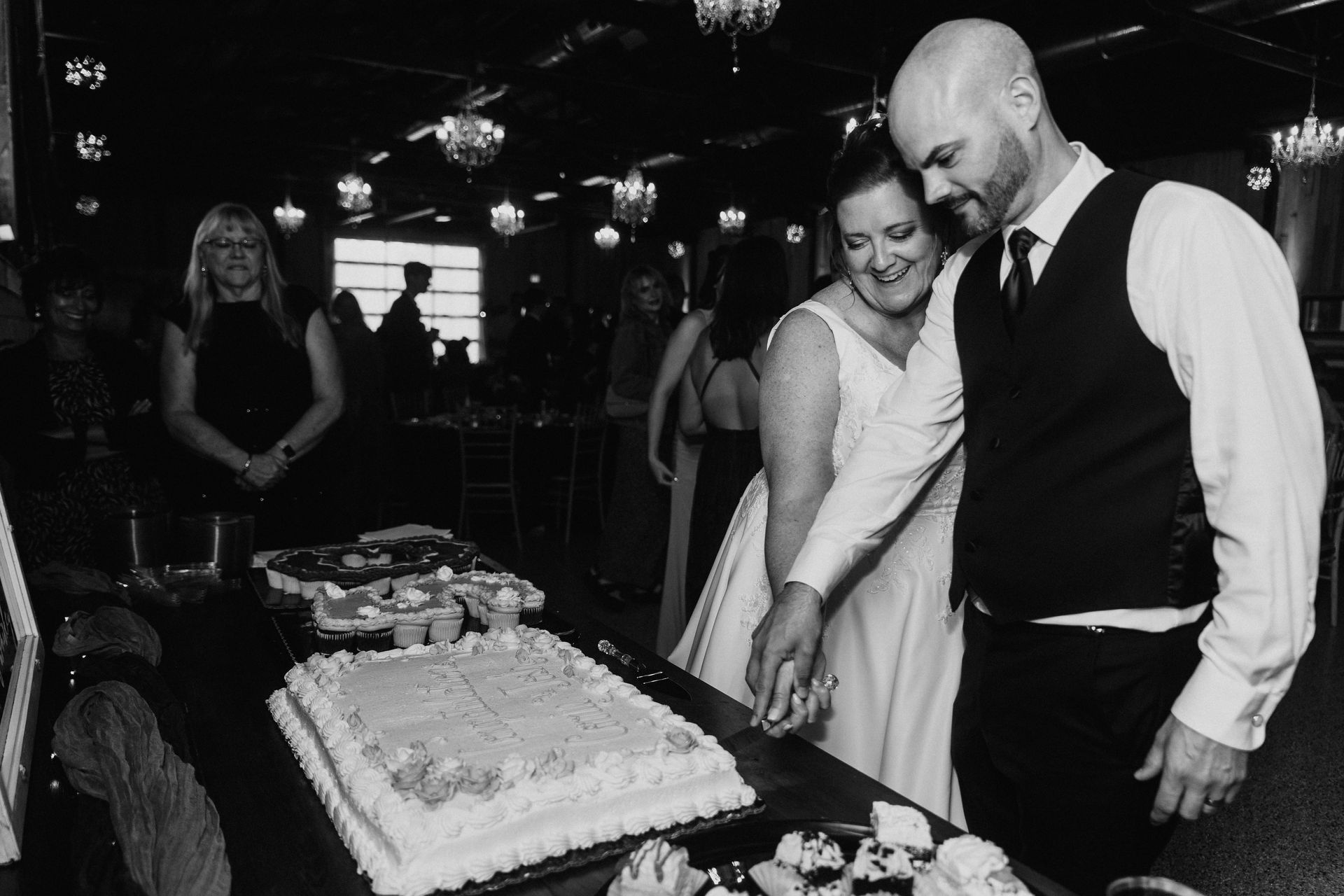
September 3, 2025
Planning a wedding can be both exhilarating and overwhelming, especially when it comes to selecting the right vendors. From florists to photographers, each vendor plays a crucial role in bringing your wedding vision to life. Here’s a step-by-step guide to help you choose the perfect wedding vendors for your special day. Some venues offer a list of vendors that they work with exclusivley or are preferred from past experience, so don't hesitate to reach out and ask for it. If they don't offer a list, or if you are looking for different suggestions, here is a good way to map out your process! 1. Define Your Vision and Budget Before you start searching for vendors, it’s essential to have a clear vision of what you want your wedding to look like. Create a mood board or a Pinterest board to gather inspiration. Additionally, set a realistic budget for each category of vendors. This will help you narrow down your options and prevent overspending. 2. Research and Gather Recommendations Start by researching vendors in your area. Look for reviews on wedding websites, social media, and local directories. Ask friends, family, or recently married couples for their recommendations. Personal experiences can provide valuable insights into a vendor’s reliability and quality of service. 3. Create a Shortlist Once you have a list of potential vendors, narrow it down to a shortlist. Consider their style, portfolio, and reviews. Make sure their work aligns with your vision and values. For instance, if you’re going for a rustic wedding, look for vendors who specialize in that style. 4. Check Availability Reach out to your shortlisted vendors to check their availability for your wedding date. Popular vendors can book up quickly, so it’s best to do this as soon as you have a date set. 5. Schedule Consultations Meeting vendors in person or via video chat is crucial. Use this opportunity to discuss your vision, ask questions, and get a sense of their personality. A good vendor should be enthusiastic, understanding, and willing to collaborate with you. 6. Ask the Right Questions Prepare a list of questions to ask during your consultations. Here are some key ones to consider: - **Experience**: How many weddings have you worked on? - **Style**: Can you show me examples of your previous work? - **Packages**: What services do you offer, and what are your rates? - **Timeline**: How far in advance do we need to finalize details? - **Backup Plans**: What happens in case of an emergency or cancellation? 7. Review Contracts Carefully Once you’ve decided on a vendor, carefully review their contract before signing. Ensure that all details, including pricing, services, and cancellation policies, are clearly outlined. Don’t hesitate to ask for clarification on any points that seem unclear. 8. Trust Your Gut Ultimately, you should feel comfortable and confident in your vendor choices. If something feels off during your interactions, trust your instincts and continue your search. Your vendors should feel like partners in your wedding journey. 9. Stay Organized Keep track of all your vendor contacts, contracts, and communication in a dedicated folder, whether digital or physical. This will help you stay organized and ensure you have everything you need as your wedding date approaches. 10. Communicate Openly Once you’ve booked your vendors, maintain open lines of communication. Share updates and changes to your plans, and don’t hesitate to ask for advice or suggestions along the way. Happy planning!
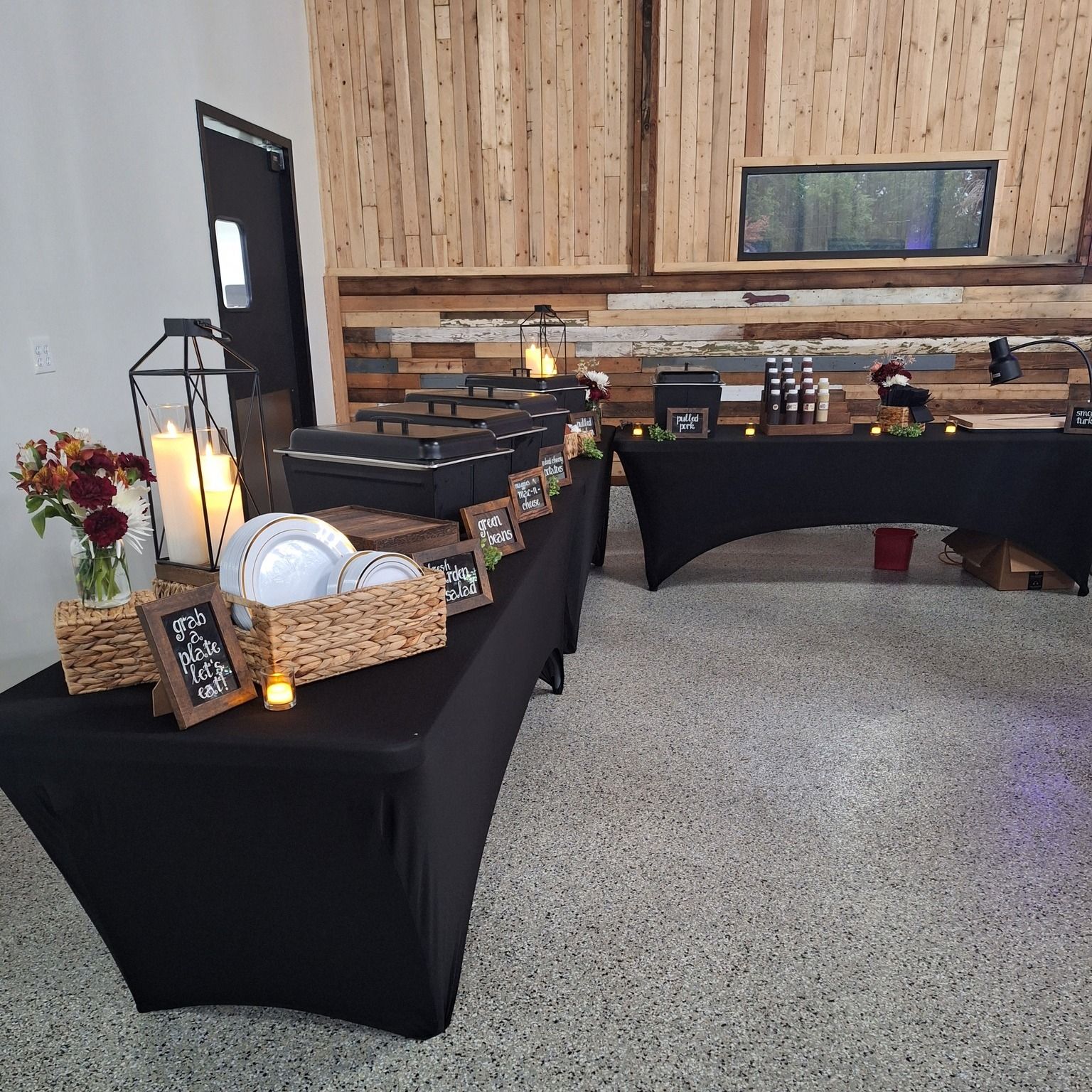
September 3, 2025
When planning a wedding, one of the most significant decisions you’ll make revolves around the type of meal service to offer your guests. Should you go with a traditional plated dinner or opt for the more casual, flexible buffet style? Both have their advantages, but the right choice depends on your wedding style, guest list, and budget. Plated Dinner: Elegance and Sophistication A plated dinner is the epitome of elegance and formal dining, making it a popular choice for weddings with a more classic, refined vibe. Here’s why you might consider this option: Pros: 1. Refined Atmosphere: A plated dinner adds an air of sophistication to your event. It’s a more formal service style that aligns with a traditional wedding aesthetic. 2. Personalized Experience: You can offer a set menu with a few options for guests to choose from. This allows you to curate the dining experience and ensure the meal aligns with your wedding theme and preferences. 3. No Long Lines: Guests remain seated and enjoy their meals at the same time, which avoids the chaos of long buffet lines and allows everyone to converse without interruptions. 4. Better Control Over Portions: The kitchen has control over portion sizes and food wastage. You know exactly how much food you’re serving, which can help with budgeting and reducing leftovers. 5. Streamlined Service: With a plated dinner, your guests are served their meals in a timely manner, and the focus can remain on other aspects of the reception, like speeches, dancing, and toasts. Cons: 1. Cost: Plated dinners tend to be more expensive due to the service staff required and the prep time for multiple dishes. The complexity of the meal can also drive up the price. 2. Limited Menu Choices: While you can offer a few options for guests to choose from, there’s less variety than you’d find in a buffet setting. Special dietary restrictions or preferences may be harder to accommodate without careful planning. 3. Longer Wait Times: While a plated dinner avoids buffet lines, it can still take longer to serve food to large groups, especially if your guest count is high. Buffet Dinner: Casual and Social A buffet dinner offers a more relaxed and interactive experience for your wedding guests. It’s ideal for couples who want a laid-back reception or a more interactive dining style. Pros: 1. Variety and Flexibility: Buffets give guests a wide selection of food to choose from. This allows for a range of dietary preferences and restrictions, making it easier to accommodate everyone. 2. Casual and Fun: A buffet tends to create a more casual, social atmosphere. Guests can mingle while they choose their meals, which makes the event feel less formal and more relaxed. 3. More Food Choices: You can offer a larger variety of dishes, which can be appealing if you want to showcase different types of cuisine or cater to diverse tastes. 4. Cost-Effective: Buffets can be more affordable than plated dinners, especially when you consider the reduced staffing needs. There’s also less worry about waste, as guests serve themselves based on their appetite. 5. Faster Serving: Instead of waiting for servers to bring food to each table, guests can help themselves, which can reduce the time it takes to serve everyone, particularly at larger weddings. Cons: 1. Less Formal: While some couples love the laid-back vibe of a buffet, it may not fit with the vision for a more formal or traditional wedding. It can feel less polished than a plated dinner. 2. Lines and Crowds: During peak times, guests may have to wait in long lines to fill their plates. This can create congestion in the reception space and disrupt the flow of the evening. 3. More Logistics: Buffets require careful planning to ensure everything stays fresh, hot, and plentiful throughout the event. You’ll also need more space to set up the buffet stations and ensure there’s enough staff to keep everything replenished. 4. Less Controlled Portions: Guests might over-serve themselves, leading to food waste. You also can’t guarantee that everyone gets the same portion sizes, which might be an issue if you have specific catering goals or budgets. Factors to Consider When Choosing Between Buffet and Plated Dinner 1. Wedding Size: Larger weddings might benefit from a buffet style, where guests can serve themselves more quickly. Smaller weddings might feel more intimate with a plated dinner. 2. Budget: Buffets are generally more cost-effective, but if you want a more upscale, personalized experience, a plated dinner might be worth the extra cost. 3. Formality of the Event: A traditional, black-tie wedding might call for a plated dinner, while a more relaxed, destination wedding or outdoor celebration could lean toward a buffet style. 4. Guest Experience: If you want to keep things casual and allow guests to interact more freely, a buffet works well. If your goal is to maintain a sense of elegance and make dinner part of the formal experience, a plated dinner is a good fit. 5. Dietary Restrictions: Buffets are more flexible in terms of accommodating special dietary needs. However, a plated dinner can also offer options for guests with dietary restrictions if planned carefully. What’s the Right Choice for You? Ultimately, the decision between a buffet or plated dinner depends on your wedding vision, the atmosphere you want to create, and your budget. - Choose a plated dinner if you want a more formal, elegant affair and are willing to invest in a refined dining experience. It’s perfect for a traditional wedding with sit-down dinners and a more intimate vibe. - Choose a buffet if you prefer a more relaxed and social atmosphere, have a larger guest list, or need more flexibility with your menu. It’s also a great way to offer a wide variety of foods while keeping costs in check. No matter which option you choose, the key is to make sure the food reflects your style, enhances your celebration, and satisfies your guests’ appetites for both delicious meals and meaningful memories.
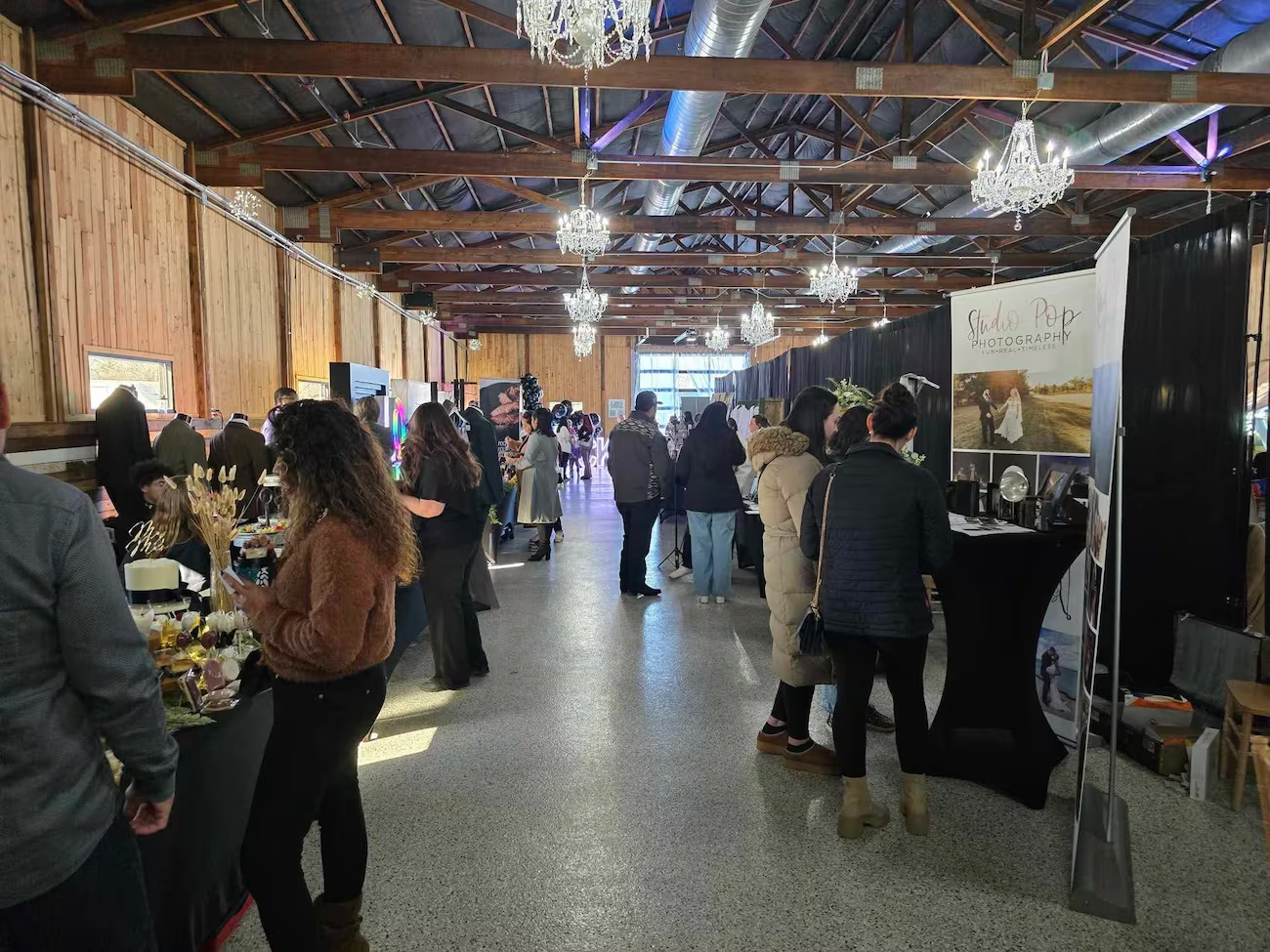
September 3, 2025
Introduction: Anyone who has ever planned a wedding knows that planning for your big day can be a very exciting, yet, challenging time. You can spend days finding just the right florist. Weeks driving around town taste testing cupcakes from oodles and oodles of bakeries in an attempt to find the buttercream that'll make your mother cry. This can go from what starts as a fun and beautiful time straight to a hairpullingly tedious one real fast. That's where Wedding Expos come in. Imagine this: Dozens of wedding vendors from all corners of the wedding world under one roof ready to make your life ten times easier! Attending a Wedding Expo is one of the most helpful things you can do when planning your big day. Whether you’re just starting your wedding planning journey or finalizing the last details, a wedding expo offers something for every couple. We just hosted our third annual wedding expo on January 25th, so, we should know about this kind of thing. Here are five reasons why you should make time to attend! Reason #1: 30+ Vendors Under One Roof! Instead of going from one end of town to another to meet with vendors, or even worse, leaving town; You can meet with everyone under one roof in one day! This is a huge time-saver and gives you a better feel for what’s available in your area. At our Wedding Expo last Saturday, we had two different barbecue caterers with Mission BBQ and City BBQ! Don't like barbecue? We had a pizza caterer in Windsor Pizza Parlor! Don't like pizza? What's wrong with you?! Tip: Take a notepad or your phone to jot down vendor names and any key details you like about their services. You can always follow up later for more information! Reason #2: Exclusive Deals & Discounts! Many vendors offer exclusive deals or discounts for couples who book their services at the expo. Whether it’s a percentage off or a free add-on, you can save money on essential Wedding services. Keep an eye out for special promotions as you walk around! At The Bricks Wedding Expo last Saturday, we were raffling off $500 discounts on our venue services! You aren't getting anything like that without the Wedding Expo experience. Tip: Be sure to ask about any “Expo-only” deals that may be available! Reason #3: Find Love! Okay, maybe you're not getting married right now. Maybe you're single! Thats okay. You can still attend a wedding expo to get an idea for who you would like to book for your future wedding. We can picture it now: You're going over to ICON Studio's booth to grab a brochure about their videography packages. You reach over to grab one and at the same time, who could very well be your future spouse is grabbing one at the same time! You just met your forever person in the aisles of love at a Wedding Expo. Reason #4: Hands on Experiences! Many Wedding Expos offer hands-on experiences, such as makeup trials, or floral design demonstrations. These experiences give you a chance to sample products, feel fabrics, and see designs up close, which helps you make informed decisions. RITUAL Massage & Bodywork attended our wedding expo and offered free massages! Where else are you getting such things while planning your wedding? We'll wait. Reason #5: Get a Taste! Often times caterers require you to book ahead of time to plan samplings. Attending a Wedding Expo can save you that extra time and give you a taste right on the spot. Conclusion: Wedding Expos are a great way to check off several items on your wedding planning checklist in one go. From meeting vendors to discovering new ideas, attending one can help make your planning process more enjoyable, efficient, and cost-effective. So, grab your fiancé, friends or family, make a day of it, and get ready to be inspired!
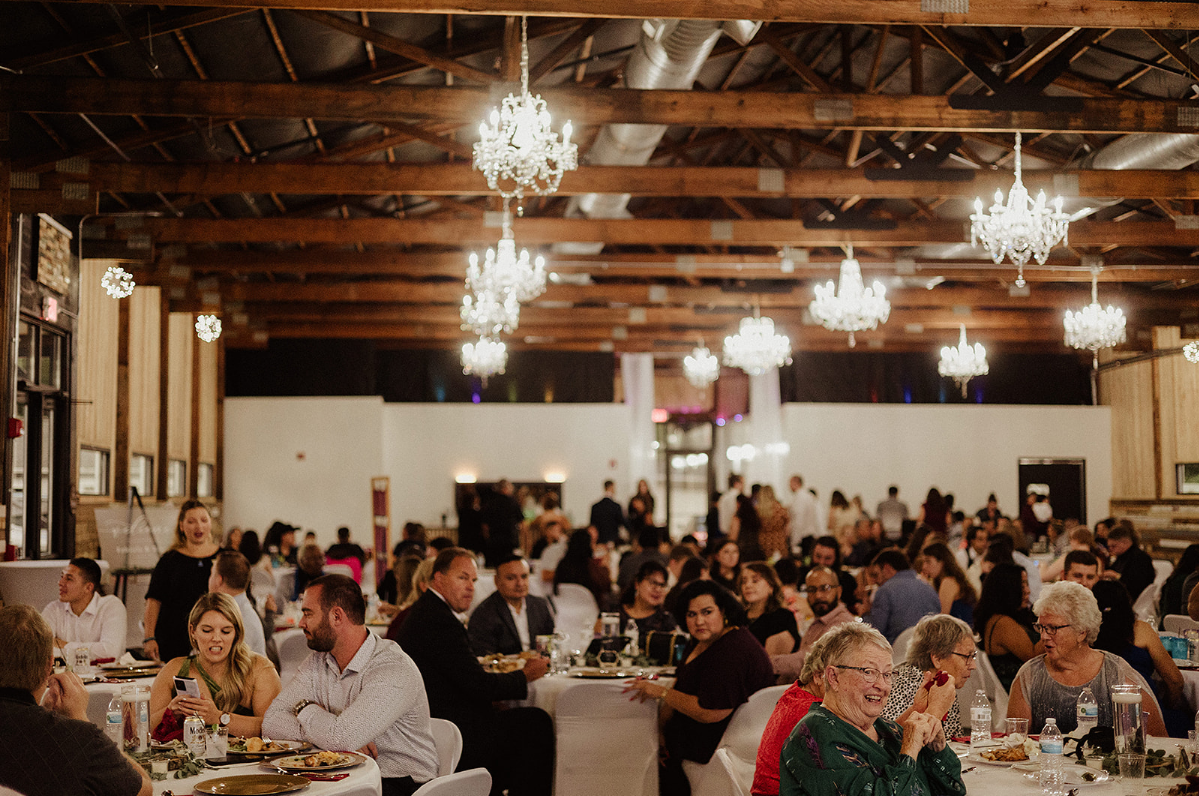
September 3, 2025
The Importance of Event Insurance: Why Every Event Needs It When planning an event, whether it’s a wedding, corporate meeting, concert, or private party, there’s a lot to think about. From choosing the right venue to ensuring that every detail is perfectly executed, event organizers have their hands full. However, one crucial aspect that is often overlooked until the last minute is event insurance. As an event venue, we understand the potential risks that come with hosting events, and how essential it is to have insurance in place to protect both the venue and the organizers. Here’s why event insurance is not just a smart choice—it’s a necessary one. 1. Protection Against Cancellations or Postponements Life is unpredictable. Sometimes, events must be canceled or postponed due to unforeseen circumstances such as severe weather, illness, or even a global pandemic. Without proper insurance, event planners could lose significant deposits, and the venue could face financial challenges as well. Event insurance can help safeguard both the venue and the event organizer against the financial losses associated with these disruptions. 2. Coverage for Property Damage Accidents can happen, and when they do, property damage can become a serious concern. Whether it’s a broken piece of furniture, water damage, or issues caused by guests, property damage at an event can be costly. Event insurance provides coverage to help repair or replace damaged items, ensuring that the venue and the event host are not left financially burdened. 3. Liability Protection Another important aspect of event insurance is liability coverage. If a guest is injured on the premises or there is damage caused by the actions of attendees, both the event organizers and the venue could be held responsible. Event insurance helps mitigate the risk of lawsuits and medical expenses that might arise from these situations, ensuring that both the venue and the event organizers are protected. 4. Vendor Issues In many cases, events involve multiple vendors such as caterers, photographers, and entertainers. If a vendor fails to deliver, cancels unexpectedly, or causes problems during the event, it can leave everyone in a difficult position. Event insurance often covers vendor-related issues, including vendor cancellation, which helps the event organizer to recover and find a solution without devastating financial consequences. 5. Peace of Mind for Everyone Involved One of the most valuable benefits of event insurance is the peace of mind it provides. For event organizers, knowing that the event is covered in the event of unexpected incidents allows them to focus on making the event memorable, rather than worrying about what could go wrong. For venues, it offers reassurance that in case something goes wrong, they will have financial protection. With insurance in place, all parties involved can relax and enjoy the event knowing they are protected. 6. Attracting Clients As a venue, offering event insurance or recommending it to clients can also make your business more attractive to potential customers. It shows that you prioritize the safety and success of their event, creating trust and boosting your reputation. Clients want to feel confident that they are in good hands, and by encouraging them to secure event insurance, you provide them with an additional layer of security. 7. Cost-Effective Protection While it may seem like an additional expense, event insurance is often a relatively small price to pay for the comprehensive protection it provides. When considering the potential costs of a canceled event, property damage, or liability claims, the cost of event insurance is a worthwhile investment that can save you from much larger financial headaches down the road. Conclusion Event insurance is an essential safety net that every event organizer and venue should have in place. From coverage for cancellations and property damage to liability protection, event insurance helps ensure that events can proceed smoothly, no matter what surprises arise. For event venues, promoting the importance of insurance not only helps safeguard your business but also builds trust with your clients. By offering insurance or requiring it for events, you’re ensuring that everyone involved is protected and can focus on what truly matters—creating unforgettable experiences. For anybody in need of event insurance, click the links below to learn more about our insurance partners: Event Guard The Event Helper
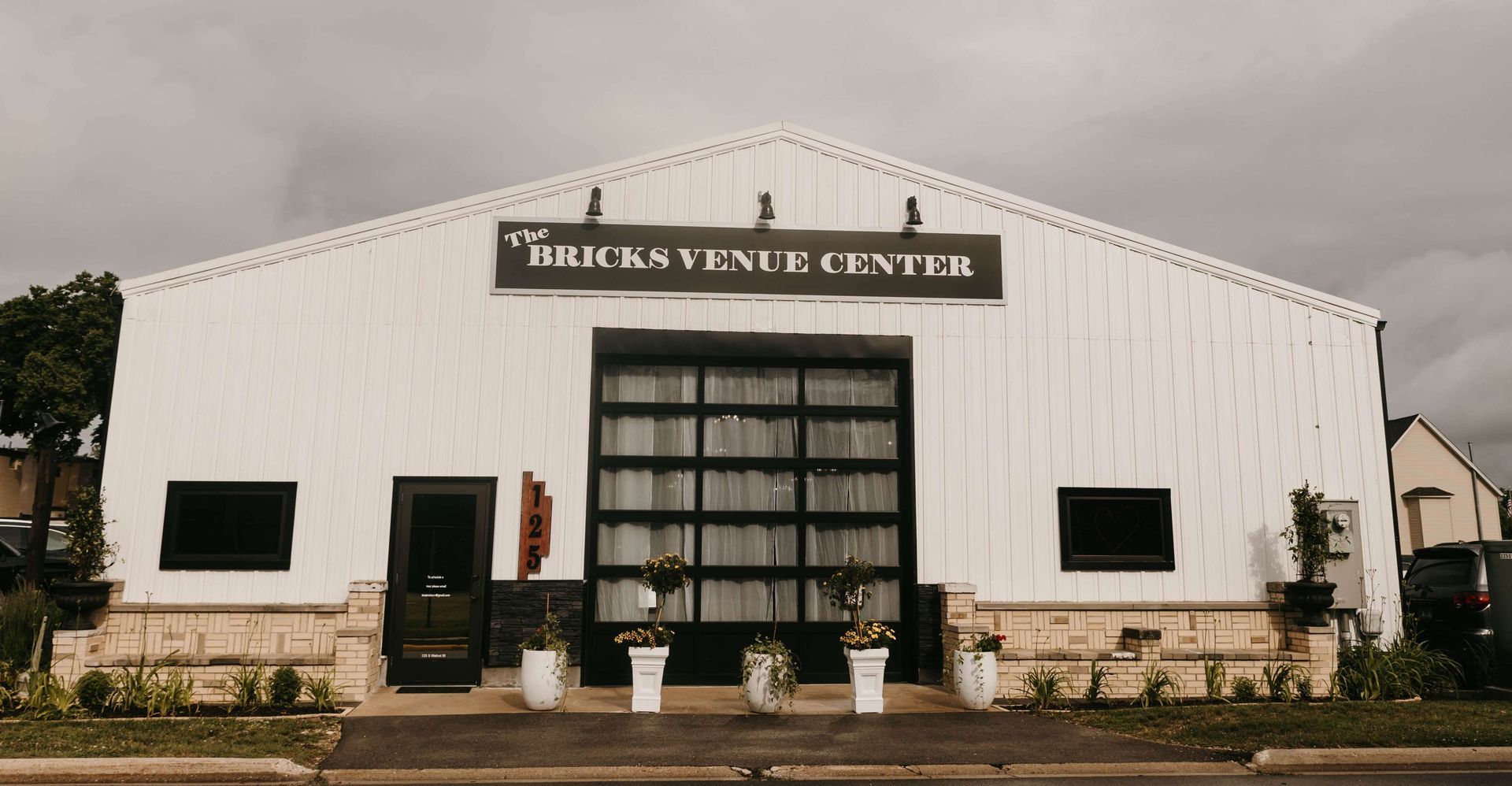
September 3, 2025
Introduction There are many things to consider when planning your big day and searching for the right venue. It involves finding a space that reflects your style, vision and personality. If you’re the type to prefer an intimate, peaceful celebration away from the hustle and bustle of the city, our wedding venue is ideal. Atmosphere One of the most important factors when choosing a wedding venue is the atmosphere. In Cherry Valley, we have that perfect small town vibe, with the kind of charm and serenity that makes it stand out. You’ll feel like you’ve stepped into a peaceful oasis, far away from the noise and chaos of city life. The town itself is welcoming and quaint, with friendly faces and a sense of community that will make you feel at home. The venue is surrounded by beautiful natural landscapes, making it a great place for outdoor enthusiasts. Our venue’s location near Baumann Park, a stunning lake adds an extra layer of magic to your wedding day perfect for golden hour photos. Whether you're dreaming of a lakeside ceremony or simply want the serene water as a backdrop for your photos, the beauty of the lake will enhance every moment. The tranquil waters, surrounded by lush greenery, create a perfect, romantic atmosphere that will make your wedding unforgettable. What Cherry Valley has to Offer When it comes to preparing for your big day, the rehearsal dinner is a key moment for families to come together, share laughter, and enjoy a delicious meal before the wedding day rush. Salamone’s in Cherry Valley offers the perfect venue for your rehearsal dinner. Known for its outstanding Italian cuisine, Salamone’s creates a warm, welcoming atmosphere that’s perfect for a relaxed, elegant evening with your loved ones. The morning of your wedding is a whirlwind of excitement, anticipation, and last-minute preparations. Before the bridal party gets busy preparing for the wedding, they can enjoy a peaceful cup of coffee at Café Amore – just 400 feet from the venue, it’s the perfect place to start your big day. Are you looking for a peaceful escape during your wedding day? Take a little stroll on down the road to Cherry Valley Library! You can read up on your favorite literature and whisper about your beautiful day with the employees at the desk. Conclusion Your wedding day is one of the most important days of your life, and the memories you create will last a lifetime. Our venue’s combination of small-town charm, natural beauty, and a peaceful lakeside setting ensures that your day will be everything you’ve imagined and more. Whether you're exchanging vows by the water or celebrating with your loved ones in a tranquil space, every moment will be enhanced by the unique beauty surrounding you. If you’re looking for a wedding venue that offers the perfect blend of serenity, natural beauty, and a personal touch, our venue is the ideal choice. Let us help you create the wedding day of your dreams, where you can relax, enjoy the moment, and celebrate love in a setting unlike any other.

September 3, 2025
Written by: Dylan Michael Introduction Every dog owner can agree on one thing; pets are your family. So whenever you're in the planning stages of your big day and it's time to send out those invitations, you might begrudgingly invite that one uncle, but, what about your dog? This is a dillema that many face. We're here to break it down. Concerns In many cases, excluding your dog from your wedding day may not be your intention. However, it could be neccessary in some cases depending on what's best for the dog at hand. Here are some things to consider: Crowds. Some dogs don't do well with lots of people or activity. Consider your dogs's personality and whether they get stressed in crowds. Some key signs to look for when determining if this is the case: Body Language : Flattened ears, tucked tail, lowered body posture, stiff gait, raised hackles on the back Vocalizations : Whining, whimpering, excessive barking, growling Avoidance behaviors : Trying to hide behind you, pulling away from the crowd, seeking to leave the area Physical reaction s: Excessive panting, drooling, trembling, shaking Aggression: Snapping, lunging, showing teeth, staring intensely Distractions : A dog is easily distracted if they constantly walk away when something interesting is nearby. Like, a squirrel or a mail man. A mail man delivering squirrels. A squirrel dressed up as a mail man- Okay, maybe I'm easily distracted. Point being, you don't want to worry about your dog running around all willy nilly while you're focused on getting married. Venue: Many wedding venues don't allow dogs, so check in with them about their policies. Here at The Bricks, we allow dogs to be involved in your wedding. But, other places obviously aren't as cool as us. Wags of Love If none of those concerns are concerning to you, I reccommend including your furry (or hairless) friends in your festivities. If you're looking to spruce them up a bit for the big day, enter Wags of Love. Wags of Love is a pet wedding attendant service specializing in helping couples include their dogs in your event. Their approach to their services are all about infusing elegance, sophistication, and personalized care into every moment of your pet's involvement in your special day. Conclusion In conclusion, dogs are man's best friend. They deserve to be included in the celebration of your love. If you're a dog owner booking a wedding with us at The Bricks in Cherry Valley and went into this article unsure, we hope we've helped you make your decision.
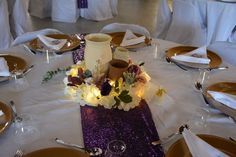
March 5, 2025
Your wedding day is one of the most special moments of your life, and ensuring that every detail is perfect is a priority. While many couples enjoy DIY projects, hiring a professional wedding decorator can elevate your celebration in ways you might not have imagined. From stress-free planning to impeccable execution, here are the key perks of hiring a wedding decorator. 1. Expert Vision and Creativity A wedding decorator brings a wealth of experience and creativity to the table. They are skilled in translating your ideas, preferences, and dreams into a cohesive vision that will look stunning on your big day. Whether you’re going for a classic, rustic, bohemian, or modern theme, a professional decorator can help you explore options that fit your style while also considering the venue, season, and budget. With their eye for design, they know how to blend colors, textures, and patterns, creating a visual atmosphere that is both beautiful and functional. Their expertise ensures that the overall decor will flow seamlessly throughout the venue and complement every aspect of the celebration. 2. Save Time and Reduce Stress Planning a wedding can be overwhelming, especially when you’re juggling other tasks such as choosing vendors, managing a guest list, and finalizing other event details. Hiring a decorator frees you from the stress of sourcing and coordinating decor items. You can trust the professional to manage everything from setting up to tearing down, ensuring that the venue is picture-perfect without you having to lift a finger. By delegating this responsibility to an expert, you’ll have more time to focus on enjoying your engagement and preparing for the big day without the anxiety of handling intricate decor logistics. 3. Access to Exclusive Resources and Suppliers Wedding decorators often have strong relationships with a network of suppliers, including florists, rental companies, and fabricators who provide high-quality decor elements. These connections can give you access to exclusive items and materials that might not be available to the general public. Whether it’s bespoke floral arrangements, unique lighting designs, or custom furniture pieces, a wedding decorator can help you secure these items while potentially saving you money through their vendor relationships. Additionally, they know where to source items that fit within your budget, making it easier to get the look you want without overspending. 4. Consistency and Attention to Detail The devil is in the details, and a wedding decorator’s attention to even the smallest of touches is what sets a beautifully designed wedding apart from a mediocre one. They ensure consistency throughout the venue, from the ceremony site to the reception hall, including table centerpieces, aisle markers, and even the tiniest decorative accents. A decorator also helps with the proper arrangement of furniture and decor to ensure smooth traffic flow, preventing crowding or awkward placements. They know how to play with lighting, colors, and textures to make your wedding feel cohesive and aesthetically pleasing. 5. Design for Your Venue Each wedding venue comes with its own set of challenges and opportunities. Some locations may have limitations in terms of space, lighting, or architectural features that could affect how decor is displayed. A wedding decorator has the expertise to work around these constraints, making the most of what’s available and designing a space that enhances the venue’s best qualities. From draping high ceilings to transforming an industrial space into a romantic haven, decorators can adapt and make even the most challenging venues work in your favor. They also know how to work with lighting, ensuring the space looks just as magical at night as it does during the day. 6. Professional Setup and Breakdown Setting up wedding decor is a time-consuming process that requires precision and timing. Wedding decorators handle all the logistics of bringing your vision to life, from arranging floral displays to ensuring every table is perfectly set. After the wedding, they also manage the breakdown, ensuring everything is cleaned up and taken care of promptly so you can relax and enjoy the post-celebration festivities. Without the need to worry about timing or organization, you can fully immerse yourself in the joy of your wedding day without the pressure of coordinating the setup and teardown. 7. Customization for a Unique Experience A professional decorator can help you add personal touches that make your wedding truly one-of-a-kind. Whether it's incorporating family heirlooms, custom signage, or special floral arrangements that have meaning to you as a couple, they can work with you to create a design that reflects your personality and love story. From color schemes to theme design, decorators can tailor every detail to create an experience that’s completely unique to you. This custom approach ensures your wedding stands out and gives your guests an experience they’ll remember forever. 8. Stress-Free Coordination with Other Vendors Wedding decorators don’t work in a vacuum. They often collaborate closely with other vendors such as florists, caterers, photographers, and lighting experts to ensure the overall design aligns with the event’s schedule and functionality. This coordination ensures smooth execution, as the decorator will manage the decor elements in harmony with the catering or music timeline. By hiring a decorator, you reduce the likelihood of confusion or miscommunication with other vendors, leading to a more seamless and stress-free day. 9. Professional Problem-Solving Skills Despite all the careful planning in the world, issues can arise unexpectedly on your wedding day. A professional decorator is skilled at troubleshooting problems as they arise. Whether it’s a last-minute change in weather, unexpected venue challenges, or an issue with decor items, they have the expertise and experience to think on their feet and find creative solutions. Their ability to stay calm under pressure and adapt to any situation ensures that your wedding remains a beautiful and enjoyable event, no matter what surprises come your way. Conclusion Hiring a wedding decorator can transform your vision into reality with minimal stress and maximum impact. From expert design and vendor relationships to personalized touches and flawless execution, a professional decorator adds immense value to your wedding day. By entrusting them with the details, you’re free to enjoy every moment of your celebration, knowing that your decor is in the hands of a skilled professional. Let a wedding decorator turn your dream day into a picture-perfect reality. If you are decorating your own wedding and looking for inspiration, check out our Wedding Decor Pinterest Board
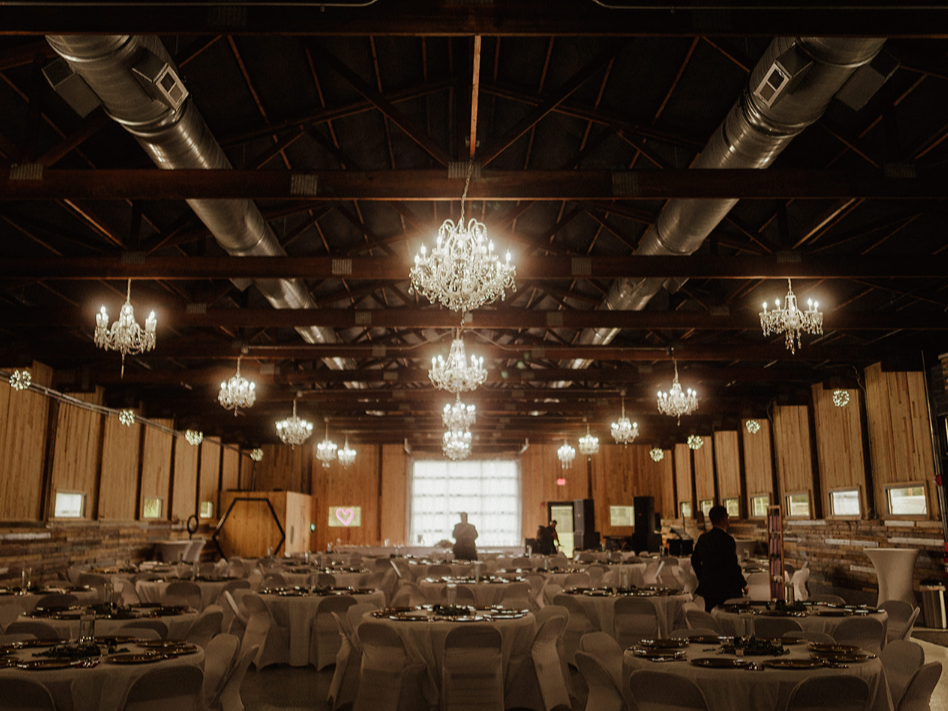
February 27, 2025
The Bricks Vendor Spotlight: Local Businesses That Do A Great Job At Weddings Written By: Dylan Michael (2/27/2025) Introduction Many times when couples book our venue for their wedding, they come to us for recommendations on vendors ranging everywhere from bakeries, DJs and bar services. We're always more than happy to help them make the planning process as simple and stress free as possible by sending a list of our most trusted vendors. Today, we'd like to share a few of those vendors with you to spread the word and help any couples out there make their decisions. Food Catering ABC Catering: For nearly two decades, ABC Catering has provided "A Better Choice" to the local community. They offer an endless variety of catering ideas to fit any budget as well as bar services. Lino's: Linos has been a focal point of the Rockford area serving delightful Italian fare for over half a century. The family run restaurant was voted "Rockford's best caterer" in 2019. Brian's Trade Rite: Offering versatile and affordable catering options, Brian's Trade Rite is a beloved local caterer praised for their quality meats. Hoffman House: Since 1946, Hoffman House has been a staple in both Illinois and Wisconsin. They offer exceptional food and bar services and are prepared for events of any size. We've worked with these businesses many times in the past and can assure you that none of them will let you down. Booking any of them for your wedding will result in full bellies and unanimously empty plates by the end of your dinner service. Florists Petals and Pickens: Located just 190 feet from our venue and coming off a 2024 Community Choice Award win for Best Florist, Petals and Pickens is a great choice for your big day. They offer wonderful arrangements for great prices. Event Floral: Founded in 2003, Event Floral was established specifically to cater weddings and events. They have a wide range of offerings and do full service deliveries. Bakeries Cake One Five: Cake One Five is an at home bakery specializing in custom cakes. Utilizing a background in art, they have mastered the art of cake decorating and are a great option for bringing your dream cake to life. DJs Luxe Productions: If you're looking for a DJ service offering top tier sound and lighting as well as a team full of wonderful people, Luxe Productions has got you covered. They have a genuine love of curating the perfect vibe for your reception. Bar Services: Abreo: Abreo features a robust wine list that has been carefully tasted and selected by Wine Curator Dan Scroggins and features drinks created by mixologist Elliott Ernst, who has been named one of the best bartenders in the country by the US Bartenders Guild. They pride themselves on providing high quality adult beverages with a mobile bar that is sure to impress. Smokey Road Mobile Bar: Serving up drinks out of a stocked up party camper, Smokey Road offers great bar service perfect for any wedding. Photography Cristina Ainley Photography: Photographing your wedding is one of the most important pieces to your puzzle of love. Cristina Ainley takes mesmerizing and timeless photos that perfectly capture the essence of your big day. She's currently offering a discount to couples choosing her services that book their wedding with The Bricks. Conclusion Here at The Bricks, we strongly believe in our local community. We are lucky to be surrounded by such great people and local businesses that help us in our mission to provide you the best for your big day. We would like to dedicate this article to all of the amazing businesses that have worked with us in the past. Thank you.

February 27, 2025
Join us March 14th at The Bricks in Cherry Valley for live music and a local business market under the worm moon! Featuring: -Local recording artists Ginja Jesus, Fish Head & The Bones and Super Brick playing live! -A unique paint and sip experience brought to you by Stop and Paint -Cash only bar brought to you by Baseball Tap -Local Business Market featuring Mrs Fishers, SRM Print, Cowcitas, Vintage Vault, Lovely Luna, Lather Valley, Cascio Ceramics, Not your mothers yarn and more! General admission are available now on eventbrite for $10, that's $5 off what you would pay at the door! Paint and Sip tickets are available now for $45. March 4th is the last chance to purchase paint tickets so get them while you can! Click the link below to purchase tickets now! WORM MOON TICKETS